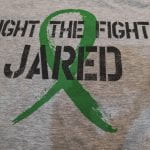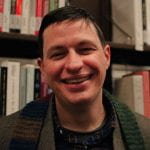
By Carolina Gillam and Lidia Elala
The word “politics” evokes different feelings in many people, and the Northwest University community is no different. Campus Ministries began a two-part mini-series titled “Jesus & Politics,” which took place on Wednesday, Oct. 7, and Friday, Oct. 9. The series was meant to be an opportunity to view the weighty topic of politics through the lens of Christian faith. Seeing as election season is drawing near, the topic becomes increasingly relevant. Both chapels showed the significance of having political discussions as Christians and not backing down from uncomfortable conversations.
In Wednesday’s chapel, guest speaker Justin Giboney spoke about how Christians should approach civic engagement unbiased and through the lens of the Bible. He repeatedly emphasized the need to “speak the truth in love,” as instructed in Ephesians 4:15. Giboney also explained why people cannot have love without truth and truth without love. He defined love in politics as advocating for neighbors and staying socially concerned with a willingness to self-sacrifice. The truth was referred to as God’s truth that cannot be changed and is not subjective. Giboney ended his message with the convicting words, “Be Christian not just in the four walls of the church.”
For Friday’s first and second chapel, Rev. Dr. Phil Rasmussen led a panel discussion called “Politics Questions & Response” with four different faculty members for each chapel. The faculty for the first chapel panel consisted of: Dr. Bill Oliverio, the assistant professor of public theology; Dr. Eve Wade, the associate professor of history; Blake Small, the director of multicultural life and Dr. Jacob Witt, the associative professor of English and director of speech and debate. In comparison, the second chapel panel included: Dr. Rick Engstrom, the dean of student development; Dr. Rowlanda Cawthon, the dean of the business; Dr. Clint Bryan, the associate professor of English and a secondary appearance of Witt. This panel hoped to bring about better discussions on issues relating to politics during the upcoming election season.
“The goal of this panel is to help our community explore our Christian calling to engage in the political [and] civic to help us navigate questions about Christian values and voting,” Rasmussen said.
Rasmussen asked a plethora of student’s questions during both chapels. Some of these questions included: whether or not Christians should be involved in politics, why do politics matter, should Christians separate the BLM movement from the BLM organization, and a wide range of other queries regarding voting, political parties, allegiances and race. After the questions were asked, faculty members had the opportunity to answer with how they thought Christians should respond or have conversations about these issues by presenting biblical truth, all the while staying fairly impartial when it came to their political views.
NU student feedback from the Oct. 9 panel was mostly positive. Many students were grateful for the faculty members who were willing to participate in the panel discussion and also for the opportunity to open dialogue about the topic on campus.
Sophomore Kenneth Guerr said, “I liked how each professor was more focused on applications for how our faith interacts with politics rather than pushing their political ideologies.”
“I appreciated the timeliness of the topic. I’m so glad that our leadership is willing to talk about the hard issues and address the uncomfortable topics. I love the environment of love that surrounds even the hard conversations at Northwest. I think politics are such a hot button issue, and I’m glad they were willing to talk about it,” junior Makenna Kahler said.
In conclusion, with the raging political season upon us, having hard conversations has proved beneficial. Both chapel sessions reminded us that we are different from the rest of the world, and as Giboney put it in his sermon, “We cannot do politics like everyone else.” If you are still wondering why it is crucial to have a conversation about politics, it was best put by Small during the panel that politics is about laws that govern the people; therefore, “politics is important because people matter.”








